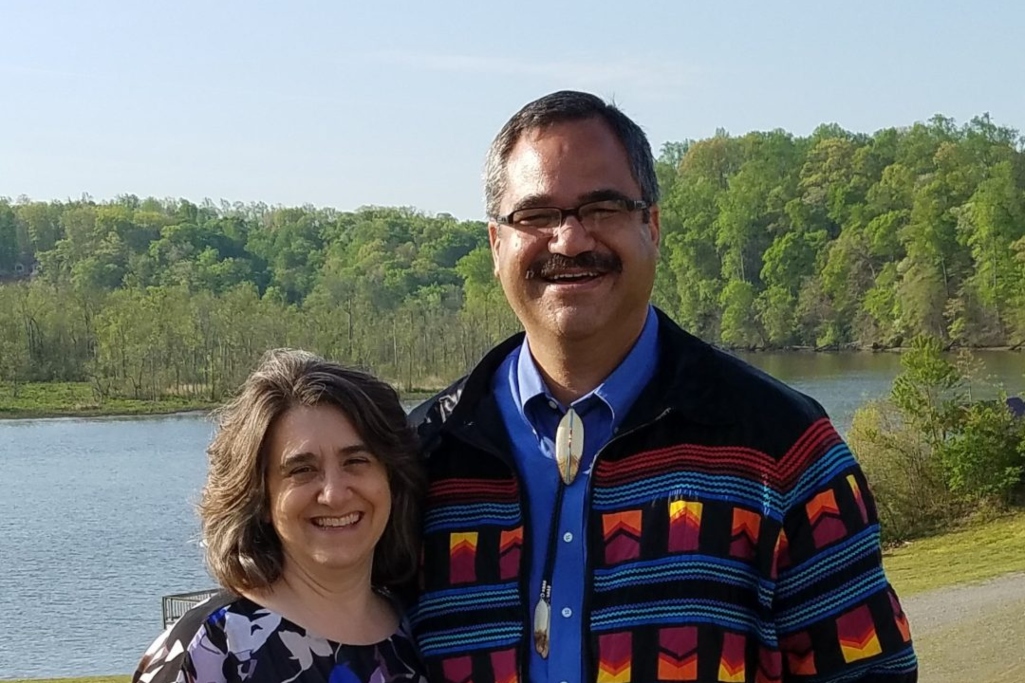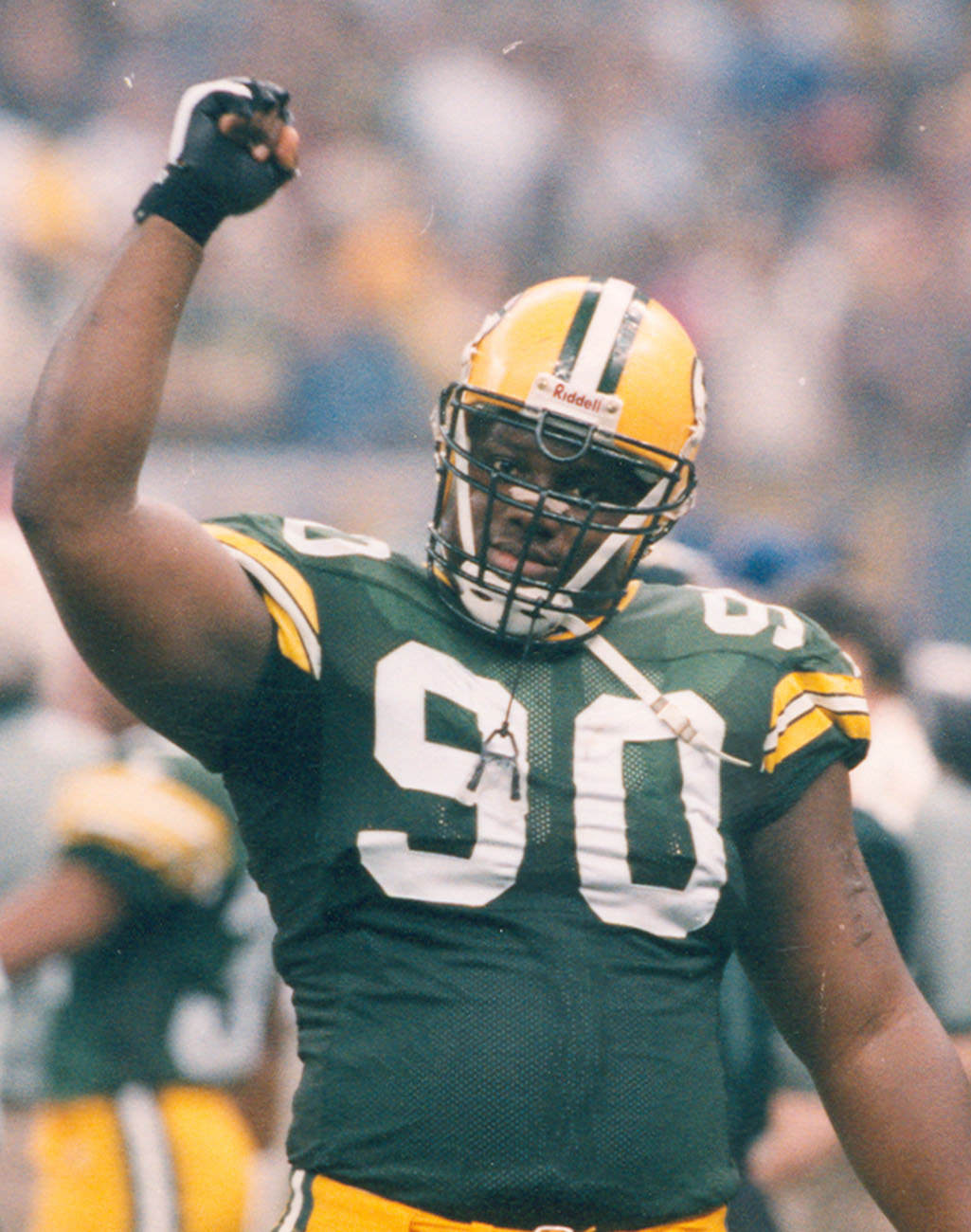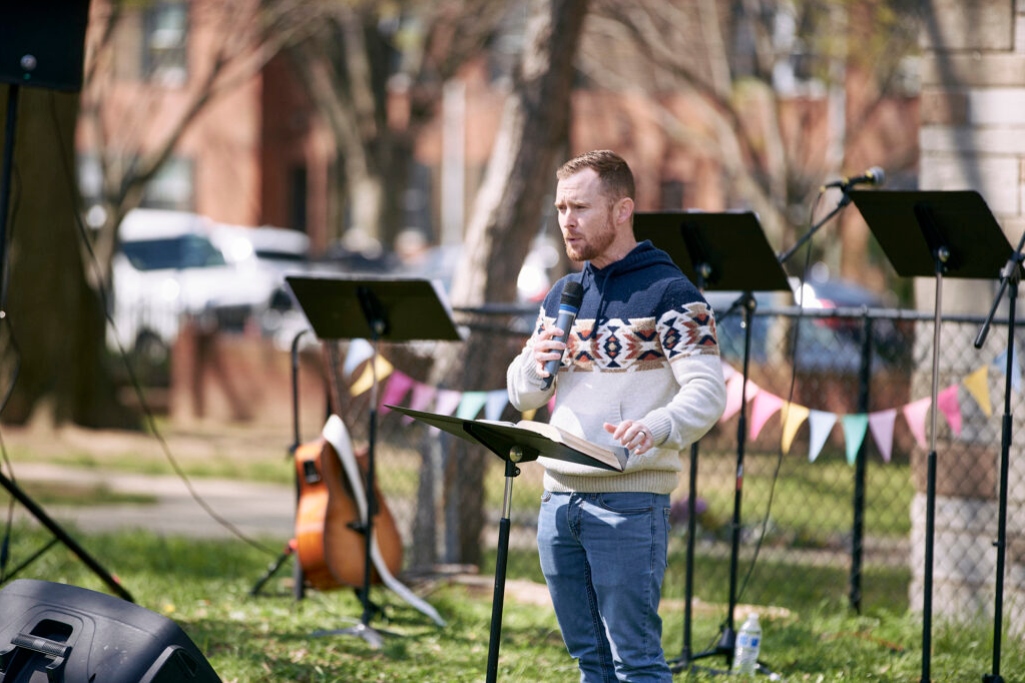
Mark and Ann Custalow
This November during Native American Heritage Month, pastor Mark Custalow has reflected not only on his own Native American heritage, but of his vision for spiritual awakening for all Native people.
After serving in various ministry positions over the years, Custalow will begin a new chapter of ministry next month as the pastor of Glorieta Baptist Church Baptist Church in Oklahoma City.
Custalow described Glorieta Baptist as a leading Native American Southern Baptist Church with many faithful pastors who came before him. Although he has always had a vision for spiritual awakening among Native people, Custalow said it was not his original plan to take a job as pastor until God intervened.
Raised in the Mattaponi tribe in Virginia, Custalow began his ministry journey by serving in support roles related to church planting and church health among Native American people, including helping with a church re-plant on a Crow Indian reservation, and serving with the Montana Southern Baptist Convention and the North American Mission Board (NAMB).
Custalow said traveling the country in his role at NAMB gave him a dream.
“During my missionary work God gave me a vision for spiritual awakening that would happen among Native American people,” he said.
“I saw a lot of spiritual warfare in Native American communities across North America. I saw that as the enemy keeps Native American people shackled in sin so that they would not realize their full potential to be used as part of this awakening among North America’s host peoples that could spread to all peoples across the Earth.”
Custalow shifted his ministry direction slightly when he began working as a regional catalyst in his home state for the SBC of Virginia (SBCV), a role he has held for the last 15 years.
Despite not working directly with Native Americans in his role with SBCV, Custalow continued ministering by starting a non-profit focused on Native ministry in 2019 called First Nations Gospel Storyers.
His plan was to continue working for the SBCV until retirement, upon which he would focus all of his energy on Native American ministry. That is until he felt God clearly prompt him to do something different.
While on a mission trip this July in Minnesota on behalf of his non-profit, Custalow connected with an old friend who told him that Glorieta Baptist was looking for a new pastor and he should send the church his resume.
Custalow immediately dismissed the idea and said he would instead send the church some other recommendations. That was until the worship services on the mission trip, during which he said “God was taking me to the spiritual woodshed.”
“God told me three things: Don’t be too quick to dismiss My promptings, your yes needs to always be on the table and let Me tell why My plan is better than your plan,” Custalow said.
As he officially assumes the pastorate on Dec. 1, Custalow said he is looking forward to how the ministry of Glorieta Baptist will play into the vision God gave him years ago.
“God revealed to me the means of accomplishing the vision for spiritual awakening was not going to be so much leading a non-profit as it was going to be launching the movement from the platform of a local church,” he said. “We believe God is going to do something special through the church that will result in the multiplication of disciples who will in turn make other disciples.”
Custalow looks to leverage the 30,000-40,000 Native Americans living in Oklahoma City for the Kingdom, and looks for Glorieta to become a sort of Antioch church that sends out believers as missionaries to the world.
Additionally, Custalow is excited to bring the ministry strategy he started with First Nations Gospel Storyers to the local church context.
He explained much of past ministry attempts aimed at Native Americans have been at best ill-informed and at worst harmful to the cause of Christ among Natives.
Custalow hopes to use his personal experience to employ a new ministry strategy to Natives.
The main components of the strategy include ministering to Native people within cities as opposed to merely on reservations, and ministering using primarily story-based oral presentations.
Because Native American languages and history are primarily passed down orally, Custalow said both his preaching and the church’s evangelistic Bible studies will entail a combination of expositional and narrative teaching methods.
“God himself was the creator of cultures, and cultures are not God’s plan B or a mistake, it’s what He intended from the very start,” Custalow said. “God gave the commandment to multiply and fill the earth in order to disperse different people out. But at the Tower of Babel people decided to instead congregate together and show how big we can be.
“God chose to intervene by confusing the languages, and people dispersed from there on. We see at the beginning in Genesis and at the end in Revelation God has a plan for every tribe and people.
“Diversity of cultures represents the diversity of all that God is and even in our diversity we reflect the very Image of God, and to see mankind without diversity is to lack that perspective of godliness.”
Thinking back on God’s prompting toward a new ministry opportunity, Custalow said it is crucial for believers to always be listening to where God may be leading them next.
“I believe that God is still in the speaking business, it’s just that we don’t always listen too well,” he said. “For many reasons we are distracted and preoccupied and don’t listen to the voice of God. We must always be surrendered and be living sacrifices daily.”
(EDITOR’S NOTE – Timothy Cockes is a Baptist Press staff writer.)


